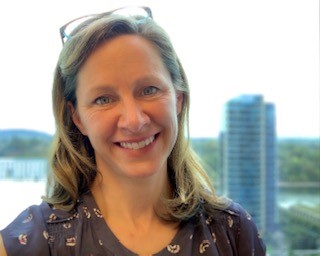By KrisAnn Talarico, LCSW, OSW-C
For Joan, learning she had a second cancer wasn’t as devastating as hearing from her genetic counselor that, because of her genetic profile, she was at an increased risk for developing breast, colon and pancreatic cancer. Now she was not only facing active treatment for one cancer, but surveillance for a second cancer and grappling with what steps to take to protect herself as best she can from future cancer diagnoses. The psychological landscape in her situation had dramatically shifted. Though she’d previously had the sense that her cancer experience ‘may never be over,’ this sense now descended on her in a new, pervasive and profound way. She was searching for how to make sense of this genetic information, and how to integrate it into the series of nutritional, stress management and exercise shifts she’d already made in her life to feel she was protecting her health. She also felt more alone, more distinct and unique from the women she’d met coping with cancer, and more isolated. And, of course, there was the question about whether to inform family members of this knowledge, not an easy decision for her given complex family dynamics at play for many years before her cancers or genetic risks became known.
As the research about inherited genetic risks related to cancer continues to grow, it is critical that oncology social workers serving patients and families coping with cancer stay informed about these advances, understand the psychosocial impact to patients, and know the resources that can support patients and families facing these very delicate, often complicated decisions that ensue from learning this kind of information. FORCE is one such resource.
FORCE, or Facing our Risk of Cancer Empowered, is a non-profit organization with a national presence based in Tampa, Florida. They are the preeminent resource for information and psychosocial support related to heredity cancer risk. They host a Peer Navigation Program, where people with cancer and a genetic predisposition to cancer can be matched with a trained peer navigator who offers information and resources for their unique situation. For people looking to connect virtually, they host Zoom support meetings that are open to people nationwide, including 12 different Zoom support meetings and August. They also offer newsletters for people interested in learning more about hereditary cancer or research opportunities, and a quarterly newsletter specific to healthcare providers. In addition, they offer these opportunities for information and connection:
-
Their free Annual Conference will be held virtually from 9 a.m.-4:30 p.m. Eastern on October 12-13.
-
The FORCE Helpline is available at 1-866-288-RISK (7475) for general genetic risk questions, and at 866-288-7475 y marca la extensión 720 for support in Spanish.
-
FORCE is collaborating with InformedDNA to provide access to board-certified genetic counselors, available toll-free at 866-288-RISK (7475), extension 704.
-
Their secure Message Board is available 24/7 and accessible online or via an app.
-
Nearly 75 Online Webinars featuring topics ranging from risk assessment and counseling, to parenting and communication, sexuality concerns, and health equity, many which are also available via their Facing Our Risk YouTube channel to which you can subscribe.
For patients and families interested in learning more about hereditary cancer risk, FORCE is a trusted, reputable resource offering not only information and access to the latest research, but also needed psychosocial support. For patients like Joan, knowing there are people coping with similar challenges helped her feel less isolated, less alone, an indeed, more empowered.

